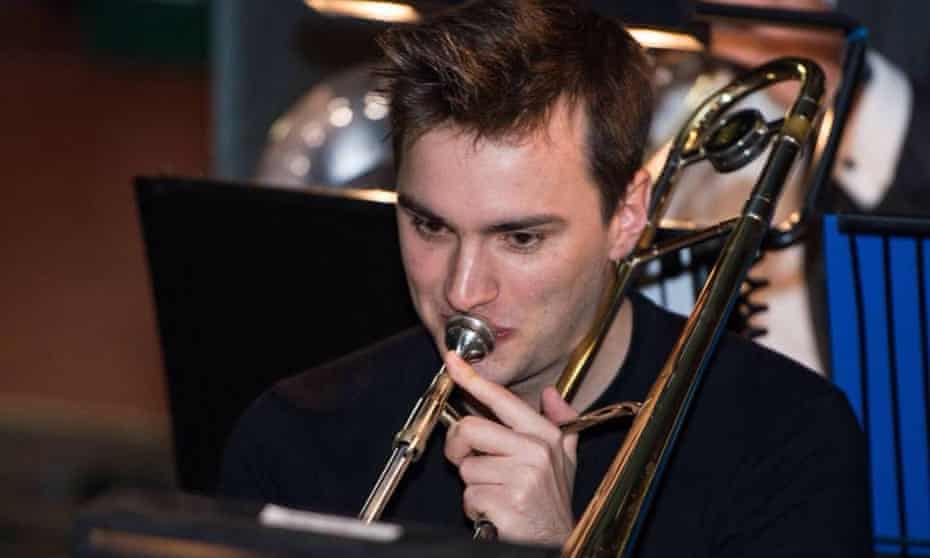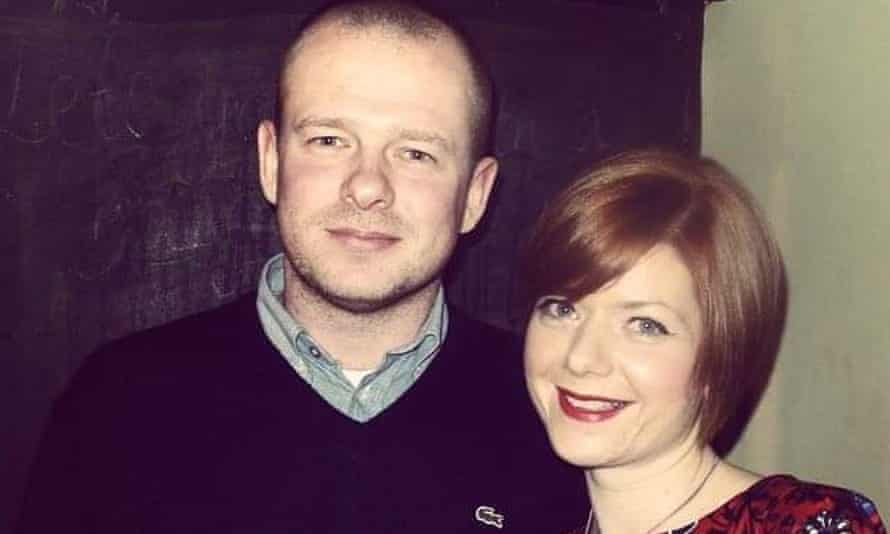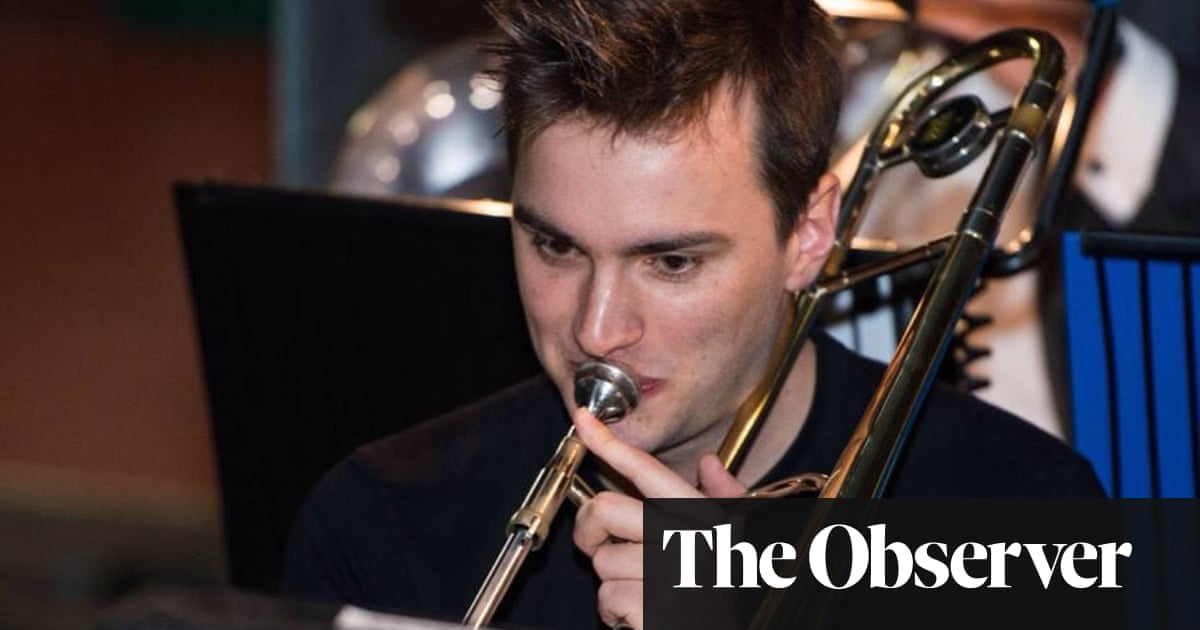Bereaved families demand investigation of every UK gambling-linked suicide
Despite an estimated 400 such deaths in England a year, charity claims regulator has looked at only two since 2015

On a summer’s day in 2015, mathematics graduate Joshua Jones put on his suit and headed to his gleaming office block overlooking the River Thames in London.
It was the trainee accountant’s day off, but he was in turmoil after gambling away most of his monthly pay and an annual bonus. He told a friend he needed to “pop into the office”.
He took the lift to the top floor of the block in the early evening and jumped to his death. He was 23.
Speaking this weekend, Martin Jones, 72, Joshua’s father, said: “To people who worked with him, he was the life and soul of the party, but he was living a double life as a gambler. He felt despair that he could not control the addiction.”
On Wednesday in Westminster, Jones’s parents, Martin and Kim, will meet other families in their position, relative of 18 young people who lost their lives while struggling with devastating gambling addictions.
It will be the largest gathering in the UK of people bereaved by gambling, and the families will call on the government for independent investigations into deaths linked to the betting industry.
A Public Health England study published in September estimated that there are more than 409 suicides a year in England associated with problem gambling. It is the first time an official estimate has been made of the number of deaths.
Liz and Charles Ritchie founded the Gambling with Lives charity after their son, Jack, took his life in November 2017 because of a gambling addiction. They have been campaigning for years for the government to acknowledge the scale of the problem. The charity is organising this week’s event.
Charles said: “When Jack died we were seeking out and finding other families who had lost a child. We started to ask how many people were dying. And nobody could tell us.”
The Ritchies did their own research and estimated that there were between 250 and 650 gambling-related suicides in the UK each year. They have welcomed the official report, which confirms their estimate of hundreds of lives lost each year.
Many of the families of those who died say that since the liberalisation of gambling laws in 2005, it is almost impossible for an addict to avoid gaming ads on social media, sponsorships deals emblazoned across the country’s football stadiums, free bets and promotional emails.
Even the Gambling Commission, which is tasked with regulating betting firms and safeguarding consumers, argues it is “normal” to gamble.
Martin Jones, who lives near Swindon in Wiltshire, said last week he considered many of those who had died felt the same shame and hopelessness that he believes led to his son’s death. Joshua, who was a talented trombone player as a schoolboy and a keen hockey player, had started gambling while in sixth form and had become hooked on online sites such as PokerStars, the online poker cardroom.
He wrote on one online forum: “I’ve just been consumed by gambling. I’m scared for my sanity. I just can’t imagine ever doing anything else other than playing poker for a living. I can’t see a way out but am slowly aware I’m digging a hole.”
His father said he would like to see new laws similar to health and safety legislation to ensure every death involved gambling was investigated.
He said: “It’s scandalous these deaths are not being properly investigated. The Gambling Commission, the betting firms and the government all hold up their hands and say ‘we did nothing wrong’. Every death should be investigated and lessons learned to promote better public health policy.”
Based on the Public Health England annual estimate of suicides associated with problem gambling, there are likely to have been more than 2,450 deaths linked to problem gambling in the years since Joshua Jones died in July 2015.
Gambling with Lives says it is only aware of two of these deaths having been investigated by the Gambling Commission. One of the regulator’s licensing objectives is to “protect children and other vulnerable persons from being harmed or exploited by gambling”.

One of the deaths investigated was Joshua’s. The regulator found no betting firm had breached regulations. The other was into the death of Chris Bruney in April 2017 after he was given VIP status by the betting website winner.co.uk, which is operated by PT Entertainment Services. The VIP schemes offer bonuses, promotions and rewards for regular gambling. The Gambling Commission found that the company had violated the rules for awarding VIP status to a client.
PT Entertainment Services was not required to pay the £3.5m in financial sanctions because it had surrendered its licence. After an outcry, its parent company, Playtech, apologised for the failings and agreed to pay more than £5m to charity over five years.
Charles Ritchie said: “What Gambling with Lives has done very successfully is made clear the link between suicides and gambling, and the scale of those deaths. It’s just criminal that all these hundreds of people are dying and nothing is being learned.” The charity wants a new system for recording deaths involving problem gambling and an independent inquiry into each of them.
The government is reviewing the gambling laws and a white paper is due in the next few months. Gambling with Lives is also calling for a range of measures to help prevent future deaths and social harms, including a ban on gambling advertising, including sports sponsorship; an end to all VIP schemes for gamblers; and a new duty of care for betting firms.
Since Joshua’s death, other lives lost include Philip Tomlinson, 29, from Manchester, who took his life in July 2017 after suffering with years from a gambling disorder; Kimberley Wadsworth, 32, from Ilkley, West Yorkshire, who died in June 2018 after a gambling spree; and Luke Ashton, 40, who took his life last April after he started gambling again during lockdown.
Annie Ashton, 40, from Leicester, Luke Ashton’s widow, said last week she had never realised the dangers of gambling until her husband’s death. She said: “I don’t gamble, but never thought there was any harm in it. I don’t understand now how it can be linked to fun when on the flip side there is this devastation that’s caused and all these deaths. “
The Gambling Commission was unable to say how many deaths linked to gambling it had investigated, but said operators were required to notify it of cases in which clients had killed themselves. Cases were investigated wherever there was suspected link to gambling.
It said: “Any loss of life connected with gambling harm is one too many and we are absolutely committed to protecting the safety of the public and players. As regulator of the industry we will continue to hold licence-holders fully accountable, take enforcement action and make sure operators are interacting with customers to identify early signs of harm.”
Industry body the Betting and Gaming Council said: “Any suicide is a terrible tragedy. Thirty million people in the UK enjoy a bet each year and the overwhelming majority do so safely. We are continuing to promote safer gambling measures.”
